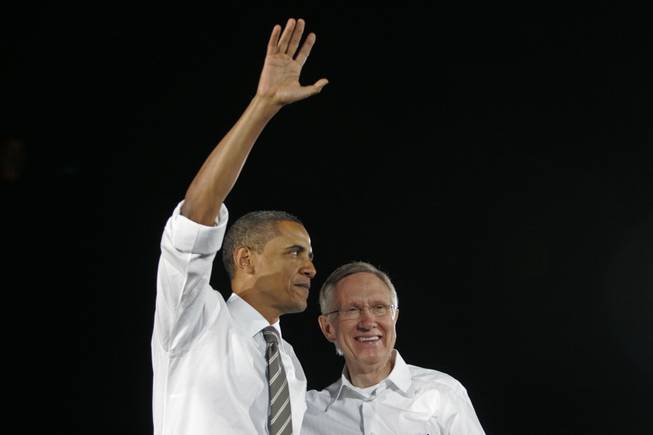
Sam Morris
President Barack Obama and Sen. Harry Reid wave to the crowd after a speech outside Orr Middle School at a “Moving America Forward” rally in 2010. Upon Reid’s retirement, Obama said: “It is no exaggeration to say that America wouldn’t have accomplished all we have these past eight years — or the past three decades — without Harry Reid. He is as tough and shrewd as they come, unafraid to do the right thing, and has never stopped fighting for folks who can’t fight for themselves.”
Monday, Dec. 19, 2016 | 2 a.m.
This story begins, as it must, in Searchlight.
It begins with a boy, born Dec. 2, 1939, in a dusty speck — population 250 — known primarily for its mines and its whores. The boy’s childhood home, made of railroad ties soaked in creosote, has no indoor toilet or hot water. And the town has 13 brothels but not a single church.
The boy’s father is a miner, though the good work dried up decades before. His mother does laundry for the brothels and casinos. Searchlight is, as the boy would describe it many years later, “not a gathering spot for Indian or animal. There is nothing there. Nothing.”
From this town of hard knocks and sunbaked dreams, the boy grows up to be the most politically powerful man in Nevada’s history: Harry Reid.
His political career would span a lifetime, from state assemblyman in Carson City to Washington, D.C., where he would serve for 30 years as a U.S. senator and as the Democratic leader for the last 12. He would pick fights and make deals. He would speak his mind, softly. He would pass legislation that would shape the future of his state as well as the nation.
Related content
But the story begins in Searchlight, and, as Reid acknowledged in a recent farewell speech, “It is a long ways from Searchlight to the United States Senate.”
The town had no high school, so he hitchhiked 40 miles into Henderson and stayed with relatives during the week to attend Basic High School. He didn’t talk about home.
“It was a crummy town. It was a place of prostitutes. Why would I want to talk about that?” Reid said, sitting in his office in the U.S. Capitol. But he added that, as a young man, he heard a speech from “Roots” author Alex Haley that changed his mind. Haley said to be proud of who you are and where you come from.
“It took me awhile to accept Searchlight, but once I did, I did it wholeheartedly,” Reid said. “You can’t run from who you are.”
• • •
It was at Basic High where Reid found a mentor — the new history teacher. His name was Mike O’Callaghan.
“I can remember the first time I saw him. I was a senior in high school. I felt I was a big shot on campus — student body president, played football — and we’re waiting on the first day of school and here comes this new teacher who walked with a limp,” Reid said. “We thought, ‘We’ll take care of him.’ ”
Soon after, one of the bigger kids beat up a smaller one, and O’Callaghan challenged the big kid to a fight.
“O’Callaghan hit him so hard, once, and he went crashing to the floor,” Reid said. “O’Callaghan admitted later he thought he’d killed him.”
The teacher became the kids’ hero after that, but he would go on to be much more: governor of Nevada.
“He was the most honest man I ever met. He went to Mass every day,” Reid said. “He was a person who was fairly foul-mouthed, if you want the truth, but he was indisputably honest about everything.”
O’Callaghan was “just a big old Irishman with either a $50,000 smile or a very scary glare,” said Billy Vassiliadis, a Democratic strategist and longtime friend of Reid. “He was such an amazing guy and Reid’s mentor.” Vassiliadis described Reid as “kind of a sponge.”
“Harry learns quickly, and he spent time around Sig Rogich and Jim Joyce and other top professionals,” Vassiliadis added. “He listens to people.”
When Reid was about to head off to college in Utah, O’Callaghan arranged for a scholarship for him from Henderson businessmen. During those college years, Reid eloped with his high school sweetheart, Landra, a quiet force and constant companion (with whom he has enjoyed a 60-year love affair).
When he needed a job while going to law school at George Washington University, O’Callaghan demanded that then-Congressman Walter Baring give Reid a patronage job as a Capitol police officer after Baring had written to Reid saying no such jobs were available.
“O’Callaghan picked up the phone and he laid into him. ‘What is wrong with you? This is one of my prized students ever. You insulted him, you insulted me, and I’m telling you, congressman, he’s coming back here and he better have a job,’” Reid recalled. “So I had a job. I was a policeman.”
That’s when Reid became friends with Jim Bilbray. Like Reid, Bilbray was a law student from Nevada moonlighting as a Capitol policeman, and the two became close, babysitting each other’s children and studying together.
“He was a great studier,” said Bilbray, who would later replace Reid in the House of Representatives after Reid moved up to the Senate. “I never knew anybody who worked as hard as Harry Reid, and that was true when he was in law school just as much as how he is in Congress.”
Reid flew back to Nevada to take the bar exam early, a few months before graduating from law school. Money was tight, and the family couldn’t afford to wait nine months for him to take the exam the following year. O’Callaghan showed up at the airport and met him with a $50 bill.
“I’d never seen a $50 bill,” Reid said. “That’s just who he was.”
Upon graduating, Reid moved back to Las Vegas to practice law, taking a number of big-ticket cases while gambling on smaller ones brought forward by prostitutes or drunks no one else would represent. In 1970, he was elected Nevada’s lieutenant governor alongside O’Callaghan, the new governor.
Instead of running again in 1974, Reid took a shot at the U.S. Senate. He lost by fewer than 700 votes to former Gov. Paul Laxalt. The next year he ran for mayor of Las Vegas and lost by a bigger margin.
It seemed his luck had run out, until O’Callaghan appointed him chairman of the Nevada Gaming Commission in 1977. Reid faced a tumultuous five years trying to clean the mobbed-up casinos, helping the FBI conduct a bribery sting while enduring threats against him and his family — including a failed attempt to blow up their station wagon.
Reid said he thought about calling it quits, but O’Callaghan was there to talk him down. Reid credits the former governor with demonstrating true honesty and loyalty.
“He said, ‘Everything is secondary to loyalty. It doesn’t matter how smart somebody is, what a good résumé they have, what kind of education they have, their experience. The only thing that matters when you have someone working for you is loyalty.’ And I’ve tried to do that,” Reid said.
It’s why he lets his staff take whatever time off is appropriate to juggle their kids’ schedules or even bring them into the office, he said. That’s how he’s gotten to know the daughter of a staffer named Lucy.
“She’s 8 years old now, and she told Laura out there — they were waiting for me — she said, ‘Sen. Reid is my friend. He said I can come and see him anytime I wanted. Sen. Reid is my friend,’” he said, laughing to himself. “So those are the things he taught me.”
Talk to a Reid staffer, former or current, or someone who knows him well, and they’ll note loyalty as one of the qualities he values above all else.
“I think that you’ll find there’s an incredible loyalty to Sen. Reid because he was such a good boss,” said Stephen Krupin, a former Reid staffer and now a senior speechwriter for President Barack Obama. “I think that for Reid’s staff this is true across the D.C. office and the state office. Everyone feels like family.”
When Reid first came to the Hill to work as a Capitol police officer, he didn’t have a particularly striking impression of the building he would later serve in for 34 years.
“It was kind of a big building,” Reid said. “It was all new.”
In 1982, he set aside his two failed bids for public office and set his sights on the House of Representatives.
“I just figured that people thought they had me buried, and I was going to prove them wrong,” Reid said.
He won that race to represent Nevada’s 1st Congressional District, serving two terms before winning a seat in the U.S. Senate in 1986. And, since then, Republicans and Democrats agree Reid has been a tireless advocate for the state.
“If you had an epitaph for him, it’d be that everything he has done points to the protection of Nevada,” said Democratic Congresswoman Dina Titus, representing the 1st District after defying Reid’s wishes and running for that office in 2012. (Reid had hoped to install Ruben Kihuen, now the representative-elect to the 4th District.)
Nevada’s other senator, Republican Dean Heller, said in a recent speech from the Senate floor that while he and Reid have had their differences, “there is no stronger partner to serve the state of Nevada.” They worked together on Nevada-specific issues, like preserving Lake Tahoe and opposing Yucca Mountain becoming a repository for nuclear waste. “My hope is that we have sent a message not only to all Nevadans, but to everyone across this country that two people that you can tell have different opinions can work well together (and) get things done for their constituents when both are willing.”
Yet Heller has called another of Reid’s signature environmental accomplishments in Nevada — getting President Obama to designate Basin and Range National Monument, a 700,000-acre conservation area — a “disgrace.” Through whatever opposition, Reid has fought to keep public the 87 percent of Nevada’s lands owned by the federal government, and promoted the development of renewable energy.
“The whole environmental piece of his agenda has kind of changed the face of Nevada,” Titus said. “I think there’s a very, very close connection to his soul there.”
Reid’s favorite fight in the Senate? Passing Obamacare. “It was dead. I didn’t have the votes, many times, at least half a dozen times. It was so hard,” Reid said, “but we were able to do it.”
Reid detailed why fighting tooth-and-nail to pass the Affordable Care Act was so personal for him in his farewell speech from the Senate floor. He talked about how his mother had been hit in the face with a softball as a young woman in Searchlight and gradually lost her teeth, and about working long hours at a service station to save up the $250 to buy her a set of false ones. He also shared that his dad, who struggled with depression, killed himself when Reid was a young man.
“As I learned more about my dad,” Reid said, “I know how important health care would have been for him.”
Starting in the 1990s, Reid and Democratic Sen. Dale Bumpers of Arkansas would annually debate an 1872 mining law that allowed mining companies to forego an estimated $100 million to $200 million in annual royalty payments to the federal government. Bumpers would bring up changing the law — once calling it “a license to steal and a colossal scam” — while Reid fought to keep it in place.
“I beat him every time, and those were close votes. One time I lost, because Kent Conrad changed his vote, and I went to Kent and said, ‘You can’t do that to me. Do you want me voting against your agricultural stuff?’ ” Reid said. “So he changed his vote, and that’s what Bumpers always used to say. ‘I beat you once, you son of a bitch, but you got somebody to switch a vote.’ So that was invigorating.”
Other accomplishments happened outside of the legislative process. In his farewell speech, Reid touted how in 2009, he called the heads of banks and the leaders of foreign countries to help save the CityCenter project on the Strip. MGM Mirage, a 50 percent partner in the project, was struggling to secure financing at the time. “I interceded in that. I did some things that probably a lot of people wouldn’t do, but I did it because I thought it was very important that operation didn’t shut down,” Reid said.
At the time, ethics expert Meredith McGehee told the Associated Press that she didn’t believe the calls broke any ethics rules, but she urged the senator to be transparent to avoid the appearance that he used his influence to unduly sway the banks.
One of Reid’s greatest strengths was in being “a backroom fighter,” said Pete Ernaut, a longtime Republican strategist based in Nevada. “His political savvy, his willingness to take anyone on and his ability to move things behind the scenes was unequaled within his own caucus, within his own party,” Ernaut said.
Sometimes that meant making enemies.
“You don’t play as tough as he did — you don’t win as much as he won — and not make enemies,” Vassiliadis said. “Harry Reid never did it safe. He didn’t do it to pacify all sorts of people and keep his contributors happy.”
His political calculations sometimes landed him in hot water, as in 2012, when Reid took to the Senate floor to claim that then-Republican presidential candidate Mitt Romney hadn’t paid any taxes in 10 years. PolitiFact gave the claim a “Pants on Fire” rating, while The Washington Post’s fact-checker gave it “Four Pinocchios.”
In an interview with CNN in 2015, Reid was asked to defend that false statement. “Romney didn’t win, did he?” was his response.
“This is what I mean when I talk about him seeing a few moves ahead on the chessboard,” said Krupin, who worked with Reid on his 2012 convention speech. “He was putting the ball in other folks’ court. It was for them to defend it. The burden was on them to prove otherwise.”
Reid also called President George W. Bush a liar twice, referred to Obama as a “light-skinned” African-American “with no Negro dialect, unless he wanted to have one,” and said New York’s Kirsten Gillibrand was the “hottest” senator. (Reid stands by his “liar” comments and apologized for the remarks on the president. Gillibrand, for her part, says she wasn’t upset by his comment.)
“I think, over the course of time, he would even say he probably could have sanded off some of the rough edges of his public statements,” Vassiliadis said. “He was not a message machine, to say the least. I think among his campaign team and consultants and friends, one of the most common refrains was, ‘He said what?’ ”
Above all, Reid was known for his toughness, something even — or perhaps, especially — his opponents acknowledge.
“It’s clear that Harry and I have very different worldviews, two different ways of doing things, and two different sets of legislative priorities,” said Senate Majority Leader Mitch McConnell, a Republican from Kentucky, in a floor speech about Reid. “But through the years, we’ve come to understand some things about one another. And we’ve endeavored to keep our disagreements professional rather than personal.”
During this year’s election season, Reid called McConnell a “poster boy for Republicans’ spinelessness” over his decision to not distance himself from then-Republican presidential candidate Donald Trump. But in his farewell speech, Reid called McConnell his friend, saying they were like lawyers on opposing sides during a trial.
“McConnell and Reid don’t need to be hugging out here every day; we’re advocates for a cause,” Reid said. “I do the very best I can, and he does the very best he can.”
What does a post-Reid Nevada look like?
No one questions that Reid built the Democratic political machine in Nevada as it stands today. That’s why it’s called the “Reid machine.”
He was responsible for making Nevada an early caucus state in 2008, which helped boost voter registration ahead of his own election in 2010. What has now become a common feature of the last three presidential cycles once seemed a “long shot,” said Darrel Thompson, a former deputy chief of staff for Reid. "The senator threw out this number like, ‘We’re going to register 50,000-100,000 news voters.’ And Rebecca (Lambe) and I looked at each other and said, ‘Really?’ Well, we registered 120,000. ... He was often underestimated and written off, but he always prevailed at the end," Thompson said. "I swear this man can see over the horizon."
The Reid machine also propelled Democrats up and down the ticket in 2016 in Nevada: Hillary Clinton won the state, Catherine Cortez Masto was elected to replace Reid in the Senate, Ruben Kihuen and Jacky Rosen each won their competitive congressional seats, and Democrats took control of both houses of the state Legislature.
“Sen. Reid certainly stands tall in Nevada politics — and nationally — because Nevada did such a good job on election night up and down the ticket, and the Democratic caucus coming back and asking, ‘How did you all do it in Nevada?’ A lot of that goes back to the machine that Sen. Reid put together,” Rep. Dina Titus said. “I think that he, in and of himself, is a political machine.”
But all of that didn’t happen overnight. Former Nevada Gov. Bob Miller, a Democrat, recalled how he, Sen. Richard Bryan and Reid used to raise funds together.
“It was always Harry that organized it, and he would decide who we were going to go meet and what we were going to request,” Miller said. “He took a strong interest in who was up-and-coming in the party and who he could help along the line.”
The responsibility of running the Democratic machine now falls to Sen. Chuck Schumer, the incoming Senate minority leader.
“Every Democrat in the country looks at Nevada and says, ‘I wish we could’ve done what Harry did in Nevada,’” Schumer said. “He puts in so much work and effort because he cares so much about his state.”
But who will run the machine here? Reid says it has to be one of the Democratic senators or members of Congress.
“The Reid machine, somebody’s going to have to pick it up. I’m not going to, because I’m not in a position to do that,” Reid said. “The Reid machine is a reality, is there. No one can ever take away what I did. But I can’t do it in my new life.”
Harry Reid isn't known for saying "goodbye."
“When you’re talking to him and you hang up, there’s nothing there. There is no ‘bye,’ the phone just goes dead,” Thompson said. “I asked him why he does that and he said, ‘Yeah, I know that’s rude.’ That’s just the way he is.”
Vassiliadis said Reid once called him and said Landra had told him he needed to be more polite and appreciative of his friends.
“If I’ve been abrupt, that’s just my way. Obviously, I appreciate you and all that.’ He didn’t say he was going to try to change, but that was the sense you got,” Vassiliadis said. “And then we went back to ‘click.’ ”
Former Assembly Speaker Barbara Buckley put it this way: “It’s not that he’s hanging up. It’s that goodbye is an unnecessary word.”
“Harry Reid is not just going to wander off into the wilderness. It’s just not his nature. He’s going to be a very active person and very interested,” Bob Miller said. “I think he will continue to keep things together and encourage people to participate and go from there.”
Schumer agrees.
“He’s going to keep an eye on Nevada."
-
In their words: Billy Vassiliadis, CEO of R&R Partners, longtime friend of Reid
“He’s a competitive freak. He really is. He’s a fighter. … Sometimes I got the sense that he loved the fight more than the outcome. Mixing it up was something he never feared. Other candidates would worry about how bad it’s going to be or bloody it’s going to be, and are they going to win or lose and pass the victory. He just jumped into the fight. He just jumped into the fray and then fought like crazy.
I say this unabashedly and without any hesitation: He’s the single most important and influential person in Nevada’s history. We’ve never had anybody as important, as powerful, that did as much, that accomplished as much, that achieved as much, that climbed as much — ever. You just don’t replace Michael Jordan. It’s going to be tough. Everybody in this state, Republicans and Democrats alike, when there was fear, the very first phone call they made was Harry Reid.
Considering the fact that most people don’t find him to be a good socializer, he had an amazing ability to build relationships with people that counted. He was the first person to identify Barack Obama as a national figure. Just was impressed. Saw the skill and the potential and sort of put his arm around Obama when Obama was a freshman. I remember Obama came out here in, I think it was ’06. Harry called me up and said, ‘You gotta come see this kid.’
Reid had a very clear sense of what he needed to accomplish, whether it was highway funding for the state, stopping nuclear waste, expanding solar energy, civil rights, voting rights. Those things that he held to be very dear and critical, he fought for. The word is fought. He didn’t appease. He didn’t pacify. He didn’t patronize. He fought. By the way, along the way, he beat a lot of people. And a lot of people didn’t want to be beat by the skinny little guy from Nevada.
It’s going to be tough. West Virginia lost Robert Byrd. Illinois lost Everett Dirksen. Each state has had that sort of monumental historical figure. Some of them were able to have a collective group of successors. We’re not going to replicate Harry Reid. He’s once in a history.”
-
In their words: Richard Bryan, former Nevada governor and U.S. senator, friend of Reid for more than 50 years
“One may not always agree with him, but one could not challenge his dedication to the people of the state of Nevada. He has been tenacious and incredibly effective as both the majority leader and as the minority leader. ... He was very influential in carrying the agendas of Presidents Bill Clinton and Barack Obama. No one had greater influence on the legislative process in the Congress. Period.”
-
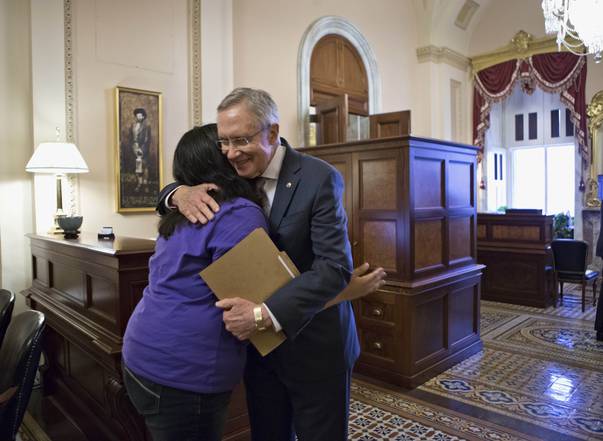
Harry Reid embraces Las Vegan Astrid Silva, a DREAM Act supporter whose family came to the U.S. from Mexico illegally and whose story has been an inspiration for Reid during work on the immigration reform bill. Reid carries a folder with letters from Silva that he read on the Senate floor before the historic vote.
In their words: Astrid Silva, Dreamer and immigration activist
“Harry Reid — Abuelito, as I call him — has had a tremendous impact on my life in all aspects of it, from education to being a better Nevadan. He believed in me when very few even understood my situation.
One of my favorite things about our relationship is that I often give him small paintings or crafts that I make, and he has them in his offices and home. He tells me that they remind him of home and of me and my family. It’s fitting, since our friendship started by me giving him handwritten letters in 2009. When I was frustrated with not being able to graduate because of the snail pace, he reminded me how much was ahead and that I was doing everything I could to continue my studies. They were often interrupted by campaigns or my inability to afford tuition; all the while he encouraged me to keep going.
When I first met him, I told him my dream was to get my associate’s degree. He always told me, ‘Dream bigger,’ which really helped me understand that the sky truly was the limit in my education. When I received my bachelor’s, I remembered how he had told me to keep dreaming. Now as I plan my future, I always think of his words but also how I can help others as he has guided me.”
-
WHAT MADE REID EXCEPTIONAL
He speaks his mind, sometimes to a fault.
Reid isn’t known for mincing his words, quiet and few as they may be. He has referred to protesters at a town hall meeting as “evil-mongers” and called George W. Bush both a “liar” and a “loser.” Leading up to the election, Reid called Trump a “flimflammer” and “human leech” who would become a “scammer-in-chief,” suggesting it was his mind, rather than the election, that was “rigged.” But it’s not just his criticisms of adversaries that have brought the heat. For instance, he got flack for saying that Sen. Ted Kennedy’s death was “going to help” Senate Democrats pass health care reform.
Elections are a game Reid knows how to play.
Reid is known as a master politicker. Ahead of a tough reelection battle in 2010, his team prepared for anything. They were ready for a worst-case scenario Republican opponent like Sue Lowden, a former anchorwoman and state senator, but hoped for an easier adversary like Sharron Angle or Danny Tarkanian. They got Angle, and after the primary, they relentlessly hammered her negatives while she struggled with a solid ground game. Reid defeated her by 5.7 percentage points.
He can really work the Senate.
It might not compute that the senate majority or minority leader hails from a small, dusty state out West. But his colleagues note that his rise to such power as a senator from Nevada proves just what kind of politician Reid is: diligent, determined, goal-oriented.
A 2010 profile by The New York Times details the moment when Reid announced that a vote on the Affordable Care Act wouldn’t happen until January 2010, “no matter what the White House thought.” The decision prompted Rahm Emmanuel, then the president’s chief of staff, to get in his car, drive to Reid’s office, and — after a “terse” exchange — convince Reid to agree to the White House’s schedule.
He also drew ire from some of his colleagues across the aisle for his practice of “filling the tree” as majority leader, a procedural move whereby all amendments to a bill are blocked and the bill is moved through the chamber.
NOTABLE DISAPPOINTMENTS AND STUMBLES
• One of Reid’s most heartbreaking defeats came in the aftermath of the Sandy Hook Elementary School shooting, when he threw his weight behind a 2013 proposal to expand background checks for gun buyers. Although public opinion polls showed overwhelming support for establishing new requirements on background checks, the initiative was defeated in the Senate amid furious opposition from the National Rifle Association and conservative Republicans.
• A glance at Reid’s protégés, including U.S. Rep. Ruben Kihuen and state Senate Majority Leader Aaron Ford, and it’s clear he’s not racially biased. But on several occasions, Reid has made racial comments that were both off-color and out of character, such as when he joked that he was “having trouble keeping my Wongs straight” during an appearance at a Las Vegas Asian Chamber of Commerce event in 2014. Reid apologized, acknowledging, “Sometimes, I say the wrong thing.”
• Before President-elect Donald Trump rewrote the book on what was an acceptable political putdown, Reid created a stir by calling President George W. Bush a “loser.” He made the comment on a day when Bush arrived in Latvia for a five-day tour of Europe, and it violated a longstanding custom for political leaders not to criticize the president while he was overseas. Reid immediately apologized for the remark, which he made during a discussion with students at Del Sol High School.
• One of Reid’s lowest moments politically came when he followed up his unsuccessful bid for Senate in 1974 with a loss in the Las Vegas mayoral election. That defeat led to speculation that Reid’s political career was over.
• In 2009, Reid scored major victories by shepherding Obamacare through the Senate and luring Republican Sen. Arlen Specter to the Democrats’ side, giving them a filibuster-proof majority. But the triumphs came at a huge expense. Congressional scholars said the session was among the most dysfunctional in history, and the rancor helped give rise to the Tea Party.
• Then came 2010. The Tea Party wave hit Washington that year, leaving Republicans in control of the House.
• Sen. Dean Heller’s election win in 2012 was a blow for Reid in two respects. First, Reid had forged a good working relationship with the senator who’d previously held the seat, John Ensign, who resigned in 2011 amid an ethics scandal. Second, Reid had put his Nevada political machine to work for Heller’s opponent, Shelley Berkley, to no avail.
• Reid has shown no remorse over making an unsourced and false accusation during the 2012 election that Republican nominee Mitt Romney hadn’t paid taxes in 10 years, saying, “He didn’t win, did he?” But the accusation prompted criticism that Reid was playing dirty pool and lowering the level of discourse in politics. And it cost him credibility when Reid accused Donald Trump of lying this year.
-
In their words: Stephen Krupin, senior presidential speechwriter, Reid’s former press secretary and speechwriter
“He would be the first to tell you that the way he delivers speeches is different than some other public officials who pride themselves on their delivery. I admire that, because it meant we were going to focus on the argument he was making. He was a trial lawyer; he knows how to make an argument. He was always thinking a few moves ahead on the chessboard. He was being honest about his delivery, and that meant that we all took the task of making the argument very seriously.
For someone who doesn’t like small talk, we talked a lot about baseball, and he is also obsessed with movies. Early on, we were walking to a speech, and he had just seen ‘The Hangover.’ It married these two interests of his — movies and Las Vegas. We were in the Senate subway, talking about the plot of this completely irreverent movie, and he’s repeating the jokes and laughing about them. I recognize that’s not how most people see him.
He passed my desk once and said, ‘So I see your guy Stephen Strasburg (a pitcher for the Washington Nationals) is having a rough patch. What’s the deal?’ I replied, ‘I think he’s pitching well, but he’s not getting the run support he needs.’ And he just sort of walked away without saying anything like he does when he hangs up on people. I turned to another staffer and said, ‘What was wrong with that answer?’ The staffer replied, ‘You’re talking to Mr. Self-Reliance. You can’t blame not getting wins on not getting enough run support.’ And that’s how he see things. You’re in control of winning and losing. You’re the starting pitcher.
The majority leader is a position that you are elected to by your peers every two years. That speaks to how much he was admired … and how much his kind of personal interaction might differ from how he was perceived publicly. He’s the most what-you-see-is-what-you-get politician that I’ve ever encountered.”
-
In their words: Jim Bilbray, former U.S. representative for Nevada’s 1st Congressional District, friend of Reid for more than 50 years
“You have to look at what Harry did with Great Basin, with Red Rock, with the environmental areas he covered. Also, what he has done with the universities. I look at UNLV more, but he had always done a lot for UNR. People will not realize how much Harry Reid did for this state. He was not vocal in everything he did.
You’ve got to understand that with Dean Heller and Catherine Cortez Masto, it’s going to take many years for them to achieve the power that Harry Reid had. Harry is the silent guy. He is the hardest working Congressmen I’ve ever met, he and Leon Panetta.
I think he might have run another term if he hadn’t gotten hurt. I asked him six years earlier why he was running. I asked, ‘Harry, why do you want to put yourself through this anymore?’ He said, ‘Because I love it; I love putting in the work and what I’m doing.’
I know Harry Reid will miss the work he did on the Hill. No one will be a better advocate for Nevada.”
-
In their words: Dina Titus, U.S. representative for Nevada’s 1st Congressional District
“Nobody has served as long or in as powerful of a position, kind of a heartbeat from the president, as Sen. Reid. It will be very hard to fill his shoes, no matter who takes the seat, because he has built up those connections and that power base over a long period of time. So it’ll be hard to do what he’s able to do. I think the biggest challenge for us will be Yucca Mountain. His ability to stop that from the position he was in is something that has been remarkable, so it’s going to take everything we’ve all got together to keep that at bay. ... It’s going to be a big change for Nevada, to go from No. 1 to No. 100. I think people don’t even realize how much he got done.”
-
In their words: Darrel Thompson, D.C. consultant and lobbyist, Reid’s former deputy chief of staff
“The car is totaled. These are massive armored SUVs, and the car is totaled. He goes to the hospital; Landra is with him. ... He says, ‘Darrel, put the rest of my schedule back on.’ I say, ‘Senator, what are you doing?’ Landra is like, ‘Harry, come on.’ He was just in a massive accident — he was hit by an 18-wheeler. He says, ‘No, put my schedule back together, OK?’ ... It’s moments like that where anyone else would have said, ‘I want to go home with my wife.’ It was a pretty big deal; it shut down the highway. There are so many moments like that: ‘Let’s keep going; let’s get it on.’ The competitor in him was always there."
-
In their words: Senate Majority Leader Mitch McConnell, the Republican Party’s highest-ranking senator since 2007
“I wanted to throw fastballs for the Dodgers. Harry wanted to play centerfield at Fenway. We wound up as managers of two unruly franchises instead.”
-
In their words: U.S. Senator Dean Heller
“It is said that it’s better to be feared than loved if you cannot be both. And as me and my colleagues here today and those in the gallery probably agree with me, no individual in American politics embodies that sentiment today more than my colleague from Nevada, Harry Mason Reid. ... This chamber has been blessed with some of the greatest men and women who have ever served our republic. Today I recognize and rise to recognize your place among these figures and hope your career will give inspiration to a young child from Carson City or Searchlight or anywhere else in Nevada to follow in your footsteps.”
-
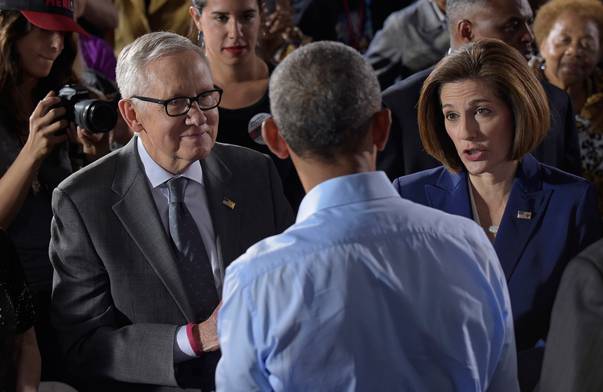
President Barack Obama, center, talks with Democratic Senate candidate Catherine Cortez Masto, right, and Senate Minority Leader Harry Reid of Nevada after speaking at Cheyenne High School in North Las Vegas on Sunday, Oct. 23, 2016, at a campaign event for Democratic presidential candidate Hillary Clinton and Cortez Masto. Obama was in Nevada to boost Clinton's presidential campaign and help Democrats in their bid to retake control of the Senate.
Harry Reid’s last power play: Election 2016
Though his name wasn’t on the ballot, Reid’s presence loomed large over the 2016 election in Nevada. Leading up to Election Day, Reid stumped across Las Vegas for the three candidates he hoped to propel to victory. It worked: Catherine Cortez Masto was elected to replace him in the Senate and Ruben Kihuen and Jacky Rosen each won their bids for Congress.
Cortez Masto remembered the morning that Reid announced he was retiring. He called her after he made the announcement, just as she was getting to head down to the city of Las Vegas for an education forum.
“Probably about 7 o’clock that morning he called me and said, ‘I don’t know if you’ve seen,’ and I said, ‘Yes, I have, senator. Congratulations, we’re going to miss you and all the best,’” Cortez Masto said. “And he said, ‘I think you’d do a great job, and you’d have my support and I hope you’d consider it.’”
She said she’d have to talk it over with her husband, Paul, and her family and let him know.
When Cortez Masto announced her Senate bid on April 8, it was with Reid’s backing only 12 days after he announced his retirement. And more than a year and a half later, she defeated Republican Joe Heck to become the nation’s first Latina U.S. Senator.
“Nobody can fill Sen. Reid’s shoes, but at the end of the day, for me, the thing we have in common is fighting for Nevada, and that’s not going to change,” Cortez Masto said. “That is my priority.”
Still, she said she’s had conversations with Reid post-election and expects those conversations to continue once she takes office.
“That’s the nature of how I operate,” Cortez Masto said. “I’ll be talking to everyone, not just one person in particular. It’s important for me to continue the lines of communication with so many people here in Nevada always.”
Kihuen, one of Reid’s proteges, is similarly gearing up to take office after defeating Republican incumbent Cresent Hardy in Nevada’s 4th Congressional District.
The congressman-elect started out as a volunteer for Reid’s 1998 Senate campaign because he needed extra credit to pass his high school government class. Kihuen said at the time he thought he was going to become a professional soccer player.
When he first met Reid, he said he was honored to meet a U.S. senator, “but I didn’t think I was going to be an elected official or be mentored by him.”
From high school volunteer, to intern, to staff member, Kihuen worked his way through Reid’s office and the Democratic machine in the state. When Reid got into leadership, Kihuen transitioned into outreach in the Latino community out of the Las Vegas regional office and helped translate for Reid at town halls.
“That’s when the mentorship began,” Kihuen said. “He pulled me off to the side. What are you studying? How is school going? How is your family doing? Believe it or not we bonded through talking about soccer.”
Finally, Kihuen decided to make his own bid for public office, running for the state Assembly in 2006. He served in the state Legislature for 10 years before running for Congress.
“Something I will never forget about Senator Reid, he is loyal to the core. He doesn’t forget things you’ve done for him. It’s part of the reason he endorsed my candidacy in the primary,” Kihuen said. “In politics loyalty is very important, so he has set a good example for me to continue that type of public service for our state.”
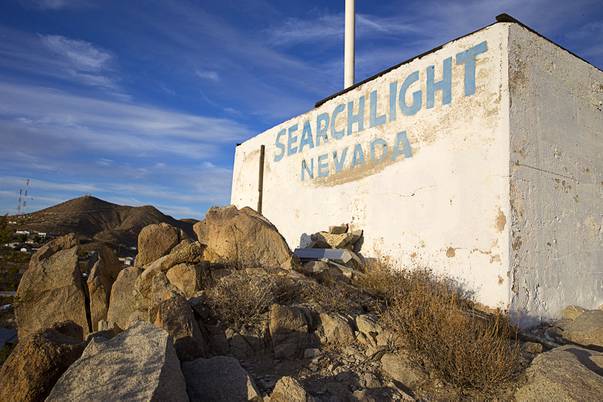
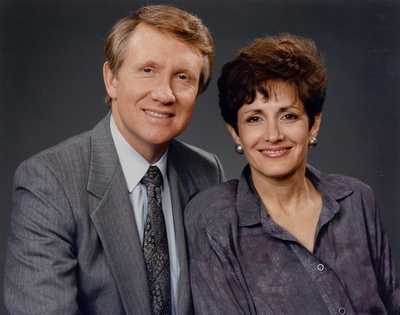
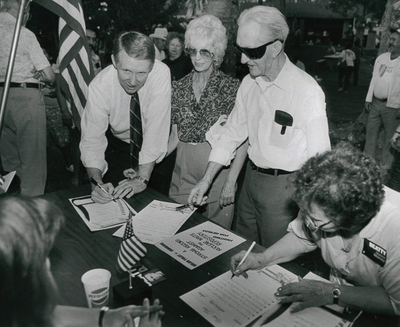
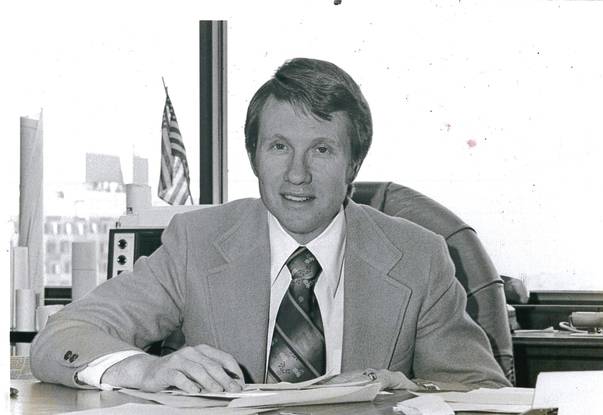
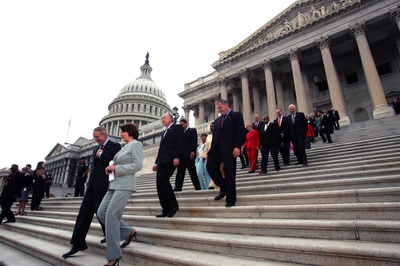
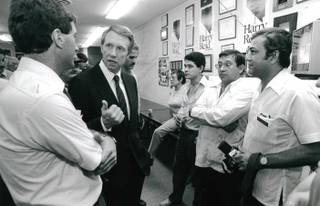
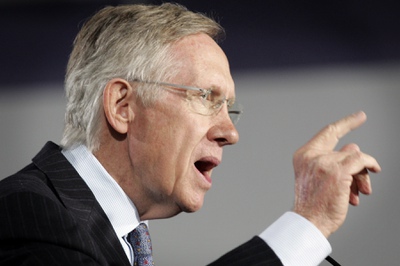
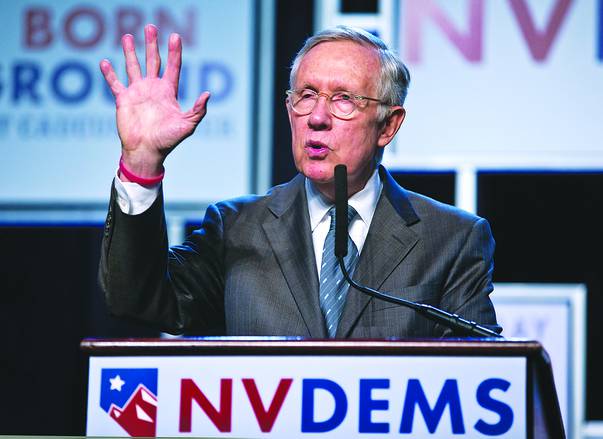
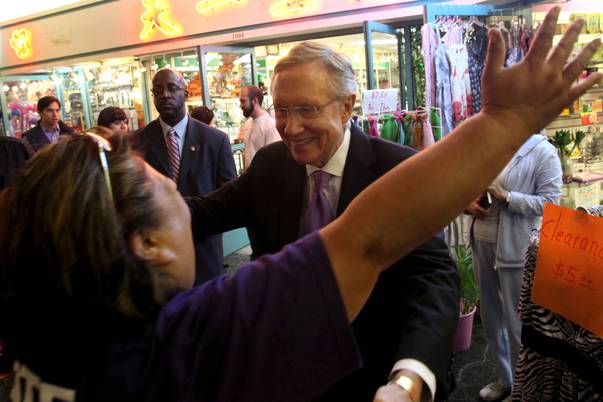
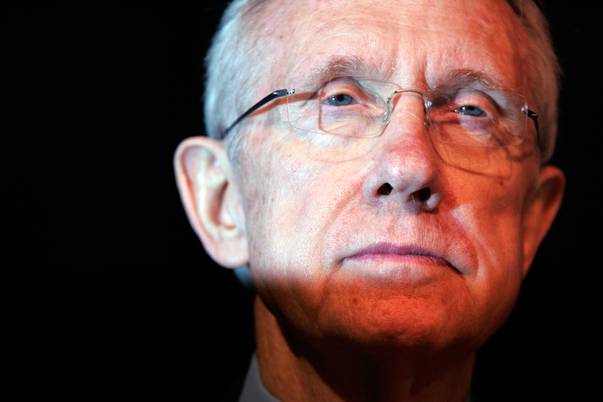
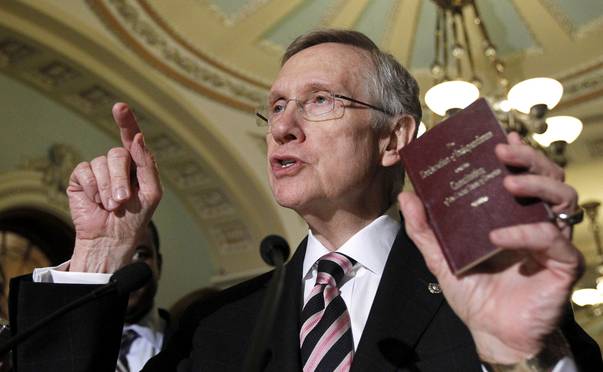

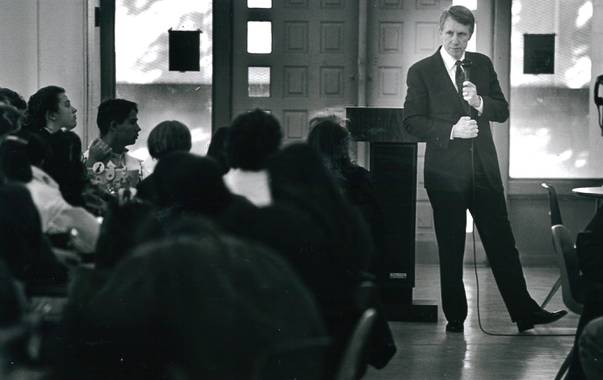
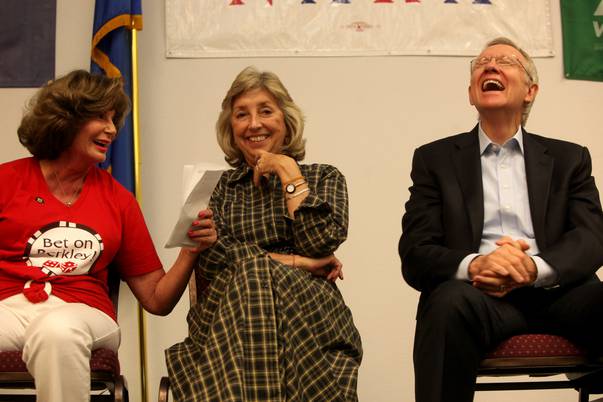
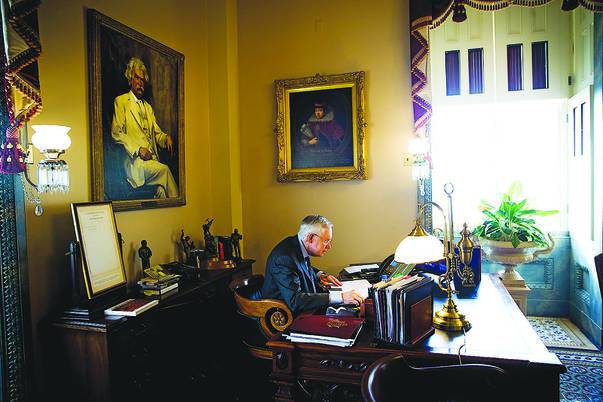
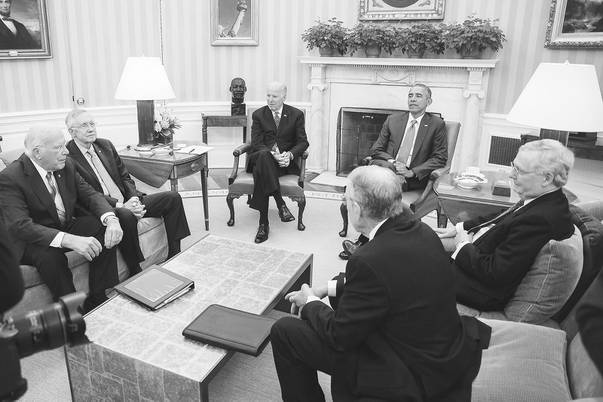
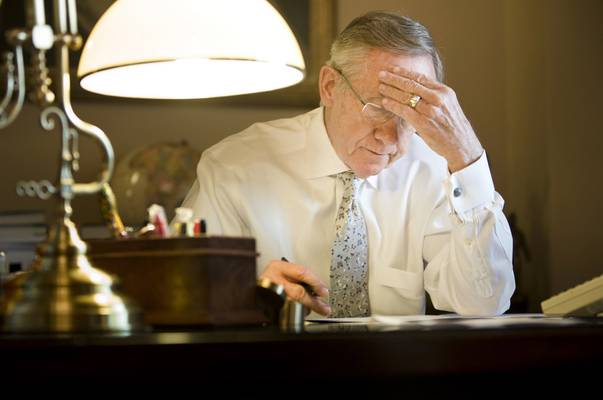
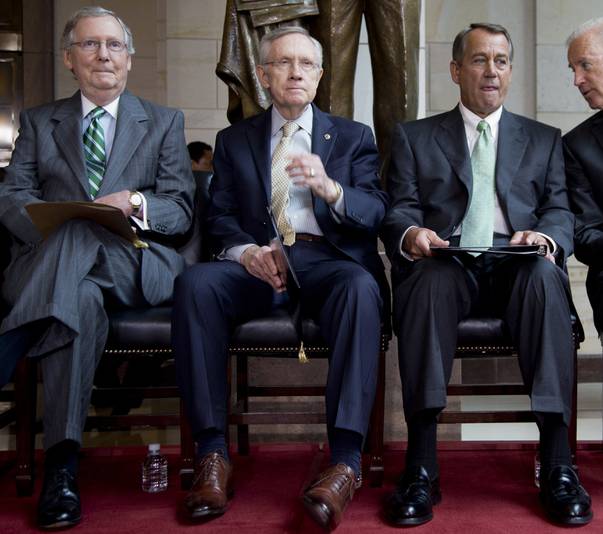
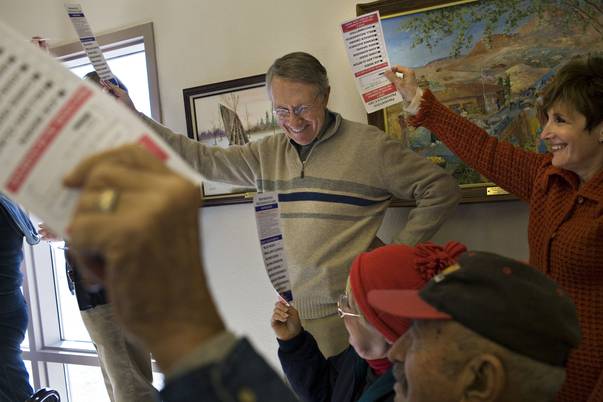


Join the Discussion:
Check this out for a full explanation of our conversion to the LiveFyre commenting system and instructions on how to sign up for an account.
Full comments policy